Container tracking systems are essential tools in the logistics industry. They allow businesses to track the movement of goods from the point of origin to their final destination. These systems offer real-time updates on the location and condition of containers, assuring timely product delivery and lowering the risk of delays or loss. Container monitoring has grown in importance in India, owing to increased international trade and a need for more effective supply chain management.
The current state of logistic container tracking in India has seen improvements with the adoption of advanced technologies like GPS and RFID. However, challenges like inconsistent tracking across different regions and limited infrastructure in certain areas still exist. Specifically, in hubs like ICD Ludhiana, container tracking is crucial for managing the flow of goods, ensuring smooth operations, and maintaining competitiveness in the global market. This article explores the definition, importance, and current state of logistic container tracking systems in India, focusing on how they impact key locations like ICD Ludhiana. It will also provide an overview of ICD Ludhiana container tracking.
Key Components of a Logistic Container Tracking System
A logistic container tracking system is a comprehensive solution that combines various technologies to provide real-time visibility and control over container movement. Understanding the key elements of this system is important for businesses looking to optimize supply chain operations and ensure the efficient handling of goods. The main components of a logistic container tracking system include hardware, software, data analytics, and integration capabilities.
Hardware Components
The hardware components are the physical devices used to track and monitor containers. These include GPS trackers, RFID tags, and sensors attached to containers. GPS trackers provide real-time location data, while RFID tags and sensors monitor conditions like temperature, humidity, and tampering. These devices are crucial for gathering accurate and timely information about each container’s status.
Software and Data Analytics
The software component of a container tracking system processes the data collected by the hardware. It includes platforms that display real-time tracking information, manage alerts, and generate reports. Data analytics plays a key role here, helping businesses make informed decisions by analyzing trends, predicting potential delays, and optimizing routes. The software also offers user-friendly interfaces for easy access to container data.
Integration with Existing Systems
For a container tracking system to be effective, it must integrate seamlessly with a company’s existing logistics and supply chain management systems. This integration promises a seamless flow of data between systems, facilitating improved coordination and communication across various supply chain stages. It also helps automate processes, reduce manual work, and improve efficiency.
Technologies Used in Container Tracking
Container tracking systems rely on various technologies to ensure accurate, real-time monitoring of goods as they move through the supply chain. These technologies work together to provide comprehensive visibility, security, and efficiency in logistics operations. Below are some of the key technologies used in container tracking:
- Global Positioning System (GPS)
GPS is a widely used technology in container tracking systems. It provides real-time location data for containers as they move across different geographies. Using satellite signals, GPS trackers attached to containers can pinpoint their exact location, allowing businesses to monitor the movement of goods throughout the journey.
- Radio Frequency Identification (RFID)
RFID technology leverages electromagnetic fields to automatically detect and monitor tags attached to containers. These tags can hold various details, including the contents of the container, its origin, and its destination. RFID readers, strategically positioned at different points along the supply chain, can access this information, facilitating seamless tracking and identification of containers throughout their journey.
RFID is particularly useful for automating inventory management, reducing manual checks, and improving the accuracy of tracking data.
- Internet of Things (IoT)
The Internet of Things (IoT) links physical devices such as sensors and trackers to the Internet, enabling them to share data and communicate in real time. In container tracking, IoT devices monitor conditions like temperature, humidity, and shock during transit, ensuring that goods are transported under proper conditions throughout their journey. IoT also enables predictive maintenance by alerting operators to potential issues before they become critical, thus reducing downtime and losses.
- Blockchain
Blockchain technology gives a secure and transparent way to record and verify transactions in container tracking systems. Each transaction, such as a container’s movement or condition update, is recorded in a decentralized ledger that is immutable and accessible to all parties involved. This ensures the data is tamper-proof and reliable, essential for high-value or sensitive goods. Blockchain can also streamline processes like customs clearance and reduce the risk of fraud.
Benefits of Logistic Container Tracking Systems
Logistic container tracking systems offer several benefits that can gradually boost the efficiency and reliability of supply chain operations. These systems provide real-time visibility, improve security, and help businesses optimize their logistics processes. Below are some benefits of implementing a container tracking system:
Real-Time Visibility
One of the major advantages of container tracking systems is the ability to monitor containers’ exact location and status in real time. This visibility allows businesses to track shipments throughout their journey, anticipate delays, reroute shipments if necessary, and provide accurate delivery estimates to customers.
Improved Security
Container tracking systems enhance the security of goods in transit by providing continuous monitoring and alerts. Features like geofencing can trigger alerts if a container deviates from its planned route, while sensors can detect unauthorized access or tampering. This helps prevent theft and ensure that goods arrive safely at their destination.
Enhanced Supply Chain Efficiency
By integrating container tracking with existing logistics systems, businesses can streamline operations and reduce manual work. Automated updates and real-time data allow better coordination between different supply chain stages, reducing delays and improving overall efficiency. This leads to quick turnaround times and lower operational costs.
Better Customer Service
With accurate and up-to-date tracking information, businesses can provide customers with precise delivery timelines and proactive updates in case of delays. This transparency builds trust and improves customer satisfaction, as clients are informed throughout the shipping process.
Data-Driven Decision Making
The data obtained from container tracking systems can be analyzed to recognize trends, streamline routes, and enhance logistics strategies. Businesses can use this information to make data-driven decisions that improve supply chain efficiency, cut costs, and boost overall profitability.
Compliance and Reporting
Container tracking systems help businesses comply with regulatory requirements by providing detailed records of the movement and handling of goods. This is particularly important in industries where traceability is essential, such as pharmaceuticals or food. The system can also generate reports that simplify audits and ensure adherence to industry standards.
What are the Challenges in Implementing Container Tracking in India?
Implementing container tracking systems in India presents several challenges that can hinder the effectiveness and adoption of these technologies. These challenges range from infrastructure limitations to regulatory hurdles and technological gaps. Here are some of the key challenges faced in implementing container tracking in India:
- Infrastructure Limitations
India’s logistics infrastructure, particularly in rural and remote areas, can be underdeveloped, making it difficult to deploy and maintain container tracking systems. Poor road conditions, inadequate rail connectivity, and limited access to reliable power and internet services can disrupt the effectiveness of tracking technologies like GPS and IoT devices, leading to gaps in real-time data.
- High Implementation Costs
The upfront costs of implementing container tracking systems can be substantial, particularly for small and medium-sized enterprises (SMEs). Costs include purchasing hardware (such as GPS trackers and RFID tags), software licenses, and ongoing maintenance. These expenses can be a barrier for businesses with limited budgets, slowing down the widespread adoption of container tracking.
- Technological Gaps
While advanced tracking technologies are available, there is a lack of skilled personnel and technical know-how to implement and manage these systems effectively in some regions of India. This can result in suboptimal use of the technology, reducing its potential benefits. Additionally, integrating new tracking systems with legacy systems can be complex and time-consuming.
- Regulatory and Compliance Issues
Regulating and complying in India can be challenging, particularly with varying state rules and regulations. Compliance with customs, transportation, and data privacy regulations can add complexity to implementing container tracking systems. Ensuring that the data collected is secure and adheres to local laws is essential but can be difficult to manage.
- Connectivity and Data Accuracy
Maintaining consistent and reliable connectivity is crucial for real-time tracking. However, in India, connectivity issues such as network outages and weak signals in certain areas can lead to inaccuracies in tracking data. These disruptions can cause delays in receiving updates and diminish the reliability of the tracking system, impacting decision-making processes.
- Resistance to Change
In some cases, stakeholders within the logistics industry may resist adopting new tracking technologies. This resistance can arise from a lack of awareness of the benefits, concerns about job displacement, or reluctance to change established practices. Overcoming this resistance requires education, training, and demonstrating the value of container tracking systems.
Addressing these challenges requires coordinated efforts from both the public and private sectors to improve infrastructure, reduce costs, enhance technical skills, and create a supportive regulatory environment for container tracking in India.
Recent Developments and Innovations
Recent developments and innovations in logistic container tracking systems in India have significantly enhanced supply chain operations’ efficiency, accuracy, and reliability. The need for better logistics visibility, security, and optimization drives these advancements.
Here are some of the key recent developments:
Smart Containers
Smart containers are a revolutionary innovation in the logistics industry. They are equipped with advanced sensors and communication technologies that enable real-time monitoring of a container’s condition and location. In India, the adoption of smart containers is growing, allowing businesses to track environmental factors such as temperature, humidity, and shock, which are crucial for sensitive cargo like pharmaceuticals and perishable goods.
These containers can also alert operators to unauthorized access or tampering, enhancing security. Integrating GPS and IoT within these containers ensures continuous visibility throughout the supply chain, leading to more efficient and safer transport of goods.
AI and Machine Learning Applications
Artificial Intelligence (AI) and Machine Learning (ML) are increasingly important in optimizing container tracking systems in India. These technologies evaluate enormous volumes of data generated by tracking devices, enabling predictive analytics to forecast potential delays, optimize routes, and reduce operational costs. AI-driven algorithms can also identify patterns and anomalies in container movement, helping prevent theft, loss, or damage.
In the Indian logistics sector, companies are beginning to leverage AI and ML to enhance decision-making, improve efficiency, and offer more reliable delivery timelines to customers.
Collaborations and Partnerships in the Industry
The Indian logistics industry has seen a surge in collaborations and partnerships to enhance container tracking capabilities. These partnerships often involve technology companies, logistics providers, and government bodies working to develop and implement advanced tracking solutions. For example, collaborations between container shipping companies and tech startups have led to the deployment of innovative tracking systems that are more accurate and cost-effective.
Additionally, the Indian government’s initiatives to promote digitalization in logistics have spurred public-private partnerships to improve infrastructure and connectivity, further supporting the adoption of advanced tracking technologies across the country.
These recent developments highlight the ongoing transformation in India’s logistics sector, where technology and innovation drive improvements in container tracking systems.
As these trends continue, businesses in India can expect greater efficiency, security, and visibility in their supply chain operations.
ICD Ludhiana Container Tracking
ICD (Inland Container Depot) Ludhiana is a pivotal logistics hub in northern India, serving as a key node for the handling, storing, and transporting of containerized cargo. Strategically located in Punjab, it caters to the industrial and agricultural sectors of the region, facilitating smooth import and export operations through its connection to major ports like Nhava Sheva and Mundra. ICD Ludhiana is equipped with modern infrastructure to handle various types of cargo efficiently, playing a vital role in supporting the supply chain needs of businesses in Punjab, Haryana, and Himachal Pradesh.
Technologies Deployed at ICD Ludhiana
ICD Ludhiana has embraced several advanced technologies to enhance container tracking and overall operational efficiency:
- Know Your Container Location (KYCL): KYCL is a cutting-edge technology that allows real-time tracking of containers at ICD Ludhiana. This system provides shippers with up-to-date information on the exact location of their containers, both within the depot and during transit. By leveraging GPS and RFID technologies, KYCL ensures that businesses have complete visibility of their shipments, enabling better planning and coordination.
- Automation of CONCOR: CONCOR has implemented automation across various operations at ICD Ludhiana to streamline processes and reduce manual intervention. Automated systems manage container movement, documentation, and data entry, which speeds up processing times and minimizes errors. This automation enhances the overall efficiency of the depot, ensuring that containers are handled quickly and accurately.
- eReverse Auction for Road Transportation: ICD Ludhiana utilizes an eReverse auction system to optimize road transportation. This platform allows transporters to bid for contracts to move containers from the depot to their final destinations. The competitive nature of the auction ensures that transportation costs are minimized while service quality is maintained. This system also promotes transparency and efficiency in the logistics process.
Operational Efficiency and Benefits
The deployment of these technologies at ICD Ludhiana has significantly improved operational efficiency. Real-time container tracking through KYCL allows for better management of container flows, reducing delays and ensuring timely deliveries. The automation of CONCOR’s operations has streamlined processes, cutting down on manual errors and speeding up the overall handling of containers. The eReverse auction system for road transportation has led to cost savings and improved service quality by fostering a competitive environment among transport providers.
These advancements have resulted in several benefits, including reduced turnaround times, lower operational costs, and enhanced transparency in the supply chain. Businesses using ICD Ludhiana can rely on more accurate and timely information, which supports better decision-making and planning.
Challenges and Future Roadmap
Despite the significant advancements, ICD Ludhiana faces challenges in fully optimizing its container tracking and logistics operations. Infrastructure limitations, such as connectivity issues in certain areas, can impact the effectiveness of real-time tracking systems. Moreover, the substantial costs associated with implementing and maintaining advanced technologies can pose a significant challenge for businesses, particularly for smaller enterprises. To address these issues, the future roadmap for ICD Ludhiana focuses on ongoing investment in technology and infrastructure improvements.
Plans may involve expanding the KYCL system’s capabilities, further automating operations to reduce dependency on manual processes, and enhancing the eReverse auction platform to cover more aspects of logistics beyond road transportation.
Additionally, there is potential for integrating emerging technologies like AI and IoT to further improve predictive analytics and operational efficiency.
Government Initiatives and Policies
The Indian government has launched several initiatives to boost the logistics sector, directly impacting the adoption of container tracking systems. The National Logistics Policy (NLP) aims to reduce logistics costs and improve efficiency by encouraging the adoption of digital technologies across the supply chain.
Additionally, the development of Dedicated Freight Corridors (DFCs) is set to enhance the speed and efficiency of freight movement, further supporting the integration of advanced tracking systems. These initiatives and regulatory support for technology adoption are expected to drive the widespread implementation of modern container-tracking solutions across India.
Sustainability and Environmental Impact
Sustainability is becoming a critical focus in logistics, with companies increasingly adopting green practices to minimize their environmental impact. Decarbonization efforts, such as optimizing transport routes and using electric vehicles, are integral to reducing the carbon footprint associated with logistics operations. Container tracking systems play a vital role in these efforts by providing data that helps minimize emissions and improve energy efficiency.
Intoglo is committed to offering sustainable shipping options for full container loads (FCL) shipping from India to the USA, which aligns with this trend. Intoglo’s approach includes using eco-friendly practices and technologies that reduce the environmental impact of shipping, such as optimizing routes to lower fuel consumption and emissions. By integrating sustainable logistics solutions, Intoglo meets global environmental goals and enhances its reputation by aligning with the growing consumer demand for responsible and eco-friendly practices.
Conclusion
Logistic container tracking systems in India have become indispensable for businesses aiming to streamline their supply chain operations. Integrating advanced technologies such as GPS, RFID, IoT, and blockchain has significantly improved container tracking accuracy, security, and efficiency. As the Indian logistics sector continues to evolve, these systems will play an increasingly vital role in enhancing operational efficiency, reducing costs, and ensuring timely delivery of goods.
The future of container tracking in India is bright, with ongoing innovations, supportive government policies, and a growing focus on sustainability driving further advancements. For businesses seeking reliable and eco-friendly shipping solutions, Intoglo stands out by offering Full Container Load (FCL) shipping from India to the USA.
Intoglo provides a seamless shipping experience with real-time tracking through its own tracking module, Glotrack. This module offers door-to-door shipment tracking, ensuring you receive shipment updates at every step, conveniently via WhatsApp. In addition to transparent pricing and a PAN India presence, Intoglo’s focus on efficiency and sustainability makes it a trusted partner in global logistics, ensuring that your shipments are handled responsibly and with utmost care.


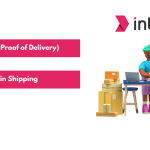
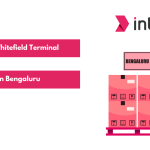
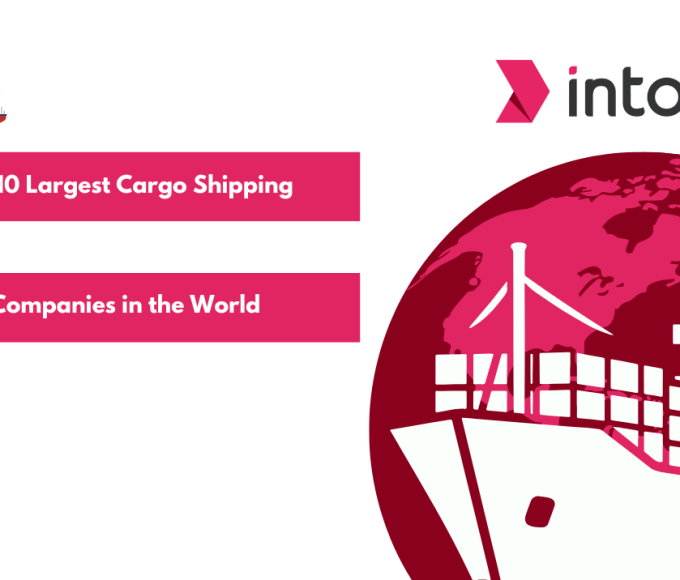
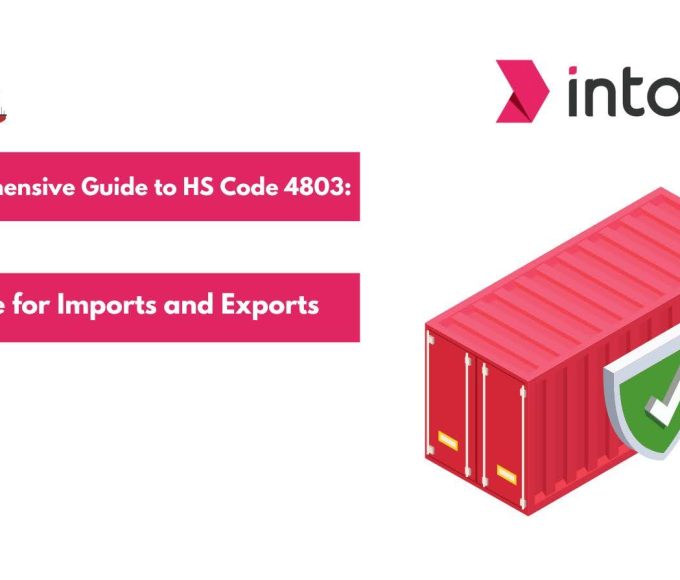
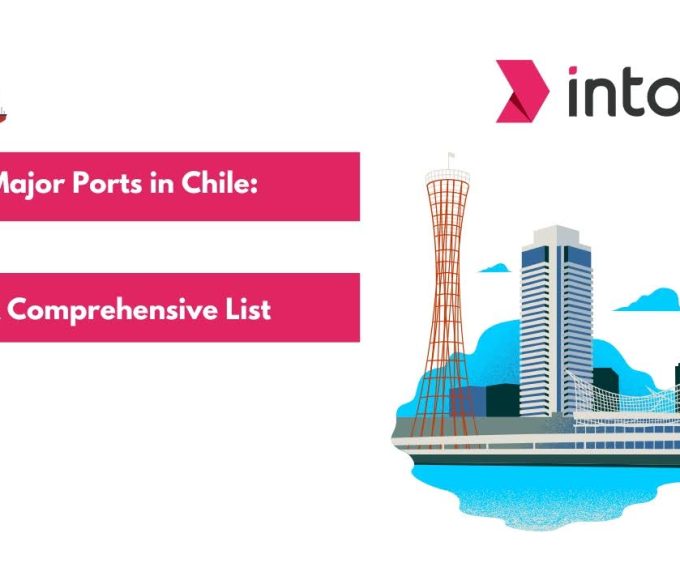
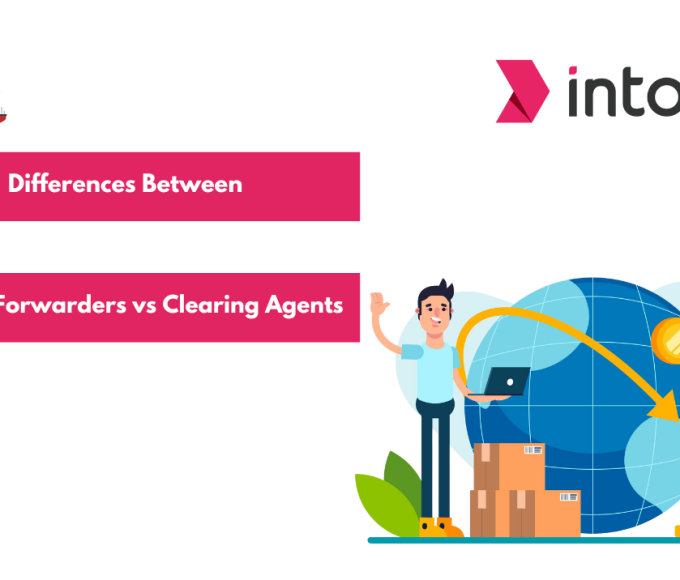
Leave a comment